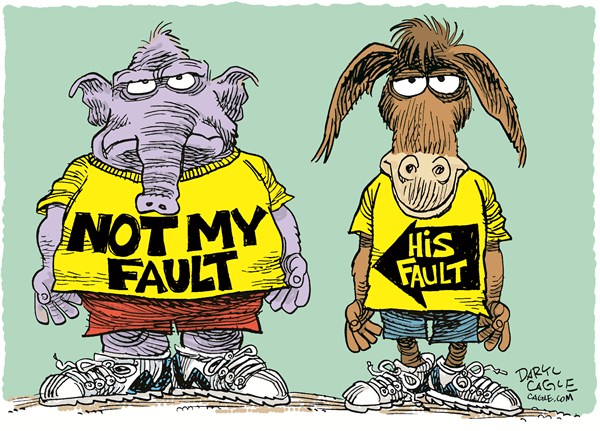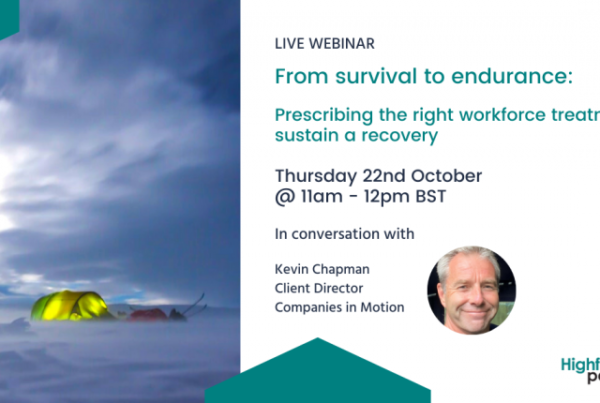Commercial thinking amongst HR professionals has been a regular chart topper in skills that are commonly lacking within the HR community, particularly at Business Partner level (see our earlier insight article ‘please find me a commercially thinking HRBP’). On the back of our research, we were prompted to conduct a follow up survey directed at mid-level HR professionals themselves, to explore how they were trying to build this capability, but also to find out how well they felt they were being supported to develop in this key area by their organisations and their bosses. Here are the results……
Do HR professionals recognise the skills gap in themselves?
A fundamental question, as if the mid-level HR professionals who apparently lack the level of commercial thinking HR & business leaders require of them, why would they be looking to do anything to resolve this skills gap if they don’t even realise there may be a problem!
- When asking mid-level HR generalists how they felt their commercial thinking compared to their peer level, only 2% felt they were below average.
- Over two thirds of respondents actually considered their commercial thinking to be above average.
Perhaps this does raise a notable question on people’s perception of where the bar for ‘average’ actually sits.
How are these commercial skills being assessed in a recruitment process?
As we found in previous research, it is clear that despite commercial thinking being a sought after quality for mid-level hiring, in truth little innovation is being used when trying to scrutinise a candidates’ capability to think commercially.
- Less than 1 in 10 respondents undertook any form of practical assessment to quantifiably test commercial thinking.
- 60% of people only undertook interviews when appointed to their current roles, 14% would undertake behavioural profiling, but practical tests such as case studies, aptitude tests, business exercises, simulations or presentations all came in at under 10%.
- In addition to this, nearly 2 out of 3 people did not have to undertake any form of assessment if promoted within their company.
Is there room for more to be done here, particularly to examine capability rather than rely on previous experience, especially when this may give a bias to those from the same sector?
Who’s to blame?
As mentioned, HR leaders or business stakeholders have long moaned that the HR talent on display can often be deficient around their commercial thinking, but is that their fault, or could it be their employers are letting them down?
At an organisational level:
- Nearly 60% of HR respondents said they have never been encouraged to engage in any formal training to enhance their commercial skills (outside of HR qualifications).
- The same number said they had never been offered a business mentor outside of the HR department, 12% had one formally arranged for them.
- 86% have never been introduced to the idea of an internal secondment to a role outside of HR.
- Overall only 1 in 4 agreed that their employers have helped them to develop their commercial acumen.
But what about self-development…..are HR professionals helping themselves?
- With 85% of HR professional questioned not having a business mentor (i.e. non-HR) offered to them, and 25% organising one for themselves, this leaves 3 out of 5 missing out on a potential invaluable resource to help them develop a better business understanding.
- 4 out of 5 have never raised the prospect of a secondment to a non-HR related role to their employers.
- With 1 in 3 actively stating that their employer does not support them to develop their commercial acumen, perhaps they are a little guilty of not taking up the initiative as well themselves?
Everything I do, I do it for you
So who’s to blame for the continued prevalence of the skills gap on commercial thinking….ultimately the purpose of this article is isn’t to point fingers of blame! Instead, based on the research, I think the insight is simply to highlight the virtue of some introspective thinking on both sides to really ask what more can be done. From that point there are plenty of incremental steps that can be taken to tackle this issue, or else it is very likely that this skill gap will torment us at the top of the charts for as long as Bryan Adams did back in 1991!
(For those too young for the last reference, take my word for it, the Bryan Adams experience was surely even worse than the current Brexit torture!)
Practical steps to consider
There are many ways to help develop commercial thinking, some of which are easily in reach, particularly using inter-departmental cooperation.
- Business Mentors outside of HR – the concept of arranging a mentor relationship with a respected colleague in the business is a proven success.
- Secondments/work shadowing – it is still rare that I see firms truly embracing the idea of organising secondments inter-departmentally, but those that do will often swear by them, and often bringing valuable experience both ways. However, when more long term commitment isn’t so easy to achieve, work shadowing can also be highly valuable alternative. Time spent in customer facing environments or roles, implanting with client groups operations, simply spending time with a respected stakeholder can all be attainable commitments, and often organised independently.
- Numbers are not always the HR community’s favourite thing, but giving training around finance skills, understanding a P&L, attending business financial presentations, negotiation training, and so on, can all help raise general commercial understanding.
- Attending your client groups team meetings, and specifically understanding the business drivers and measures for these teams. Present the outcomes/challenges/objectives back to your own teams.
- Invite subject matter experts from within the business to present at HR team meetings.
- On the assessment side, the use of tools to produce hard or predictive data to an individuals’ commercial capability could produce positive outcomes rather than relying for very tried and tested methods. Simulation exercises or workplace scenarios could all give insight at a very practical level.
As ever, thanks to all the HR professionals who contributed to this research.




